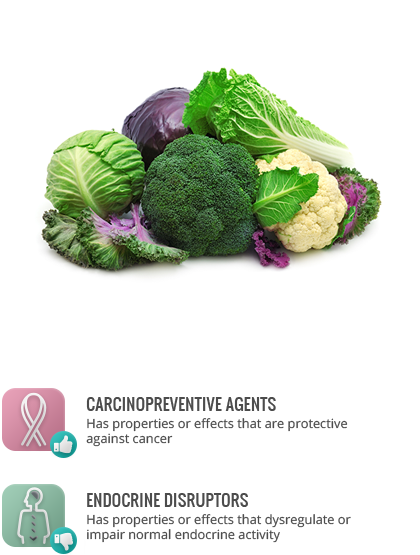Glucosinolates
Definition
Glucosinolates are a family of over one hundred sulphur-containing phytochemicals found primarily in cruciferous vegetables. They are responsible for the distinctive taste of brassicas such as cabbage and broccoli, and for the pungent flavour of mustard and horseradish. Multiple types of glucosinolate will be present in a single vegetable.
Health considerations
Glucosinolates can inhibit uptake of certain minerals and certain crops have in the past been bred to low levels. More recently however glucosinolates have been shown to have promising anticancer effects. Individual glucosinolates are broken down into a variety of compounds through processing. There is concern of glucosinolates being converted to compounds with anti-thyroid effects. Cooking can reduce this conversion, though it may affect conversion of glucosinolates to beneficial compounds as well. See: Isothiocyanates, Thiocyanates, Goitrin
Keep in mind
Glucosinolates are inactive until hydrolyzed; this may occur with chopping, cooking, fermentation. Hydrolysis products include isothiocyanates, thiocyanates, nitriles, and oxazolidine-2-thiones. Glucosinolates leach into cooking water.
May be found in
Cabbage, broccoli, brussels sprouts, kale, kohlrabi, turnips, pak-choi, mustard greens, radish, horseradish, rutabaga, watercress
References
International Journal for Vitamin and Nutrition Research
Cornell University College of Agriculture and Life Sciences
Natural Product Reports
Human & Experimental Toxicology
Alternative Spellings and Names
Mustard oil glycosides


